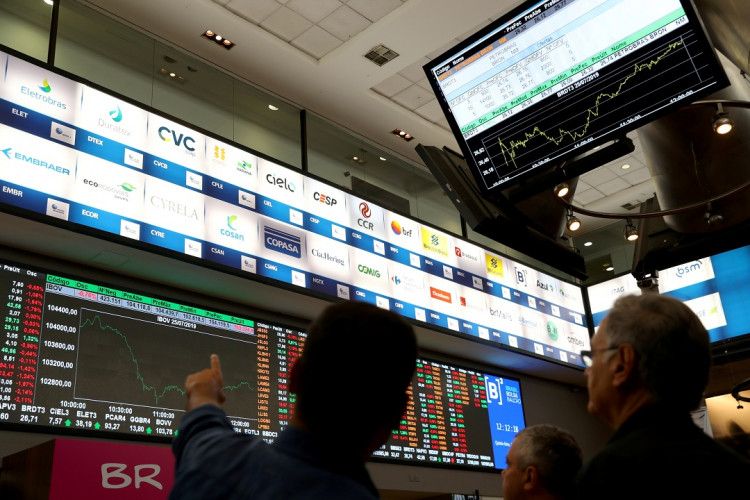TOKYO – The Chinese share market extended its positive run on Tuesday, in line with the mainland government's push for a stronger market, while the rest of the region turned cautious on equities.
MSCI's broadest index of Asia-Pacific shares outside Japan see-sawed during the local session and was down 0.2%, after it briefly traded in positive territory.
The negative performance on Tuesday came after the index rose 7%, which took it to a 4-1/2 month high in the past five trading sessions.
Japan's Nikkei gave up 0.7% while U.S. stock futures shed 0.25% in Asia after hefty gains on Monday in the wake of surging Chinese shares.
In China, Shanghai's blue chip CSI300 index and Shenzhen shares, which had gained more than 13% in the past five sessions, rose a further 1.5%, led by rises in the tech sector.
Ample Finance Group director Alex Wong said while Chinese market sentiment was positive, investors remained cautious to the risk of that being short-lived.
"The mood is still quite strong...and I think people will be willing to hold on for a while as we absorb some of the positive news in the world," Wong told Reuters in Hong Kong.
"The upward momentum is strong but people are alert to the prospect of any reversal of that. If that occurs we could see a sharp correction."
Hong Kong's Hang Seng index was down 0.86% despite the city's chief executive Carrie Lam saying on Tuesday market reaction had been positive to China's recently introduced national security law.
Analysts said jawboning by the Chinese government through a state-sponsored journal on the importance of "fostering a healthy bull market" published on Monday had spurred the buying binge in mainland Chinese shares.
The current China rally has echoes of the past, especially during 2007 and in the buying binge that followed the crash in 2015 that was largely driven by Chinese retail investors.
"Shades of John F. Kennedy's 'Ask not what your country can do for you' inauguration speech here and as close as you might get to a Chinese government 'put' as anything the Fed has done to date vis-à-vis the U.S. stock (and credit) markets," said Ray Attrill, head of FX strategy at NAB, in a research note.
A sharp rebound in U.S. services industry activity in June, almost returning to pre-pandemic levels, also helped to whet investors' risk appetite.
Still, new coronavirus cases surged in several states, forcing some restaurants and bars to close again in a setback to the budding recovery, keeping gains in risk assets in check.
In the currency market, the Chinese yuan made headway, hitting its highest levels in nearly four months. The renminbi rose 0.1% to 7.0115 per dollar.
"The yuan is supported by the risk-on mood in the Chinese share market despite lingering uncertainties over the U.S.-China relations and an anticipated slow pace of recovery," said Ei Kaku, senior strategist at Nomura Securities.
"Nor have we seen large capital flows that would boost the yuan," she said.
Other major currencies were little changed, with the yen flat at 107.41 to the dollar and the euro unchanged at $1.1312.






